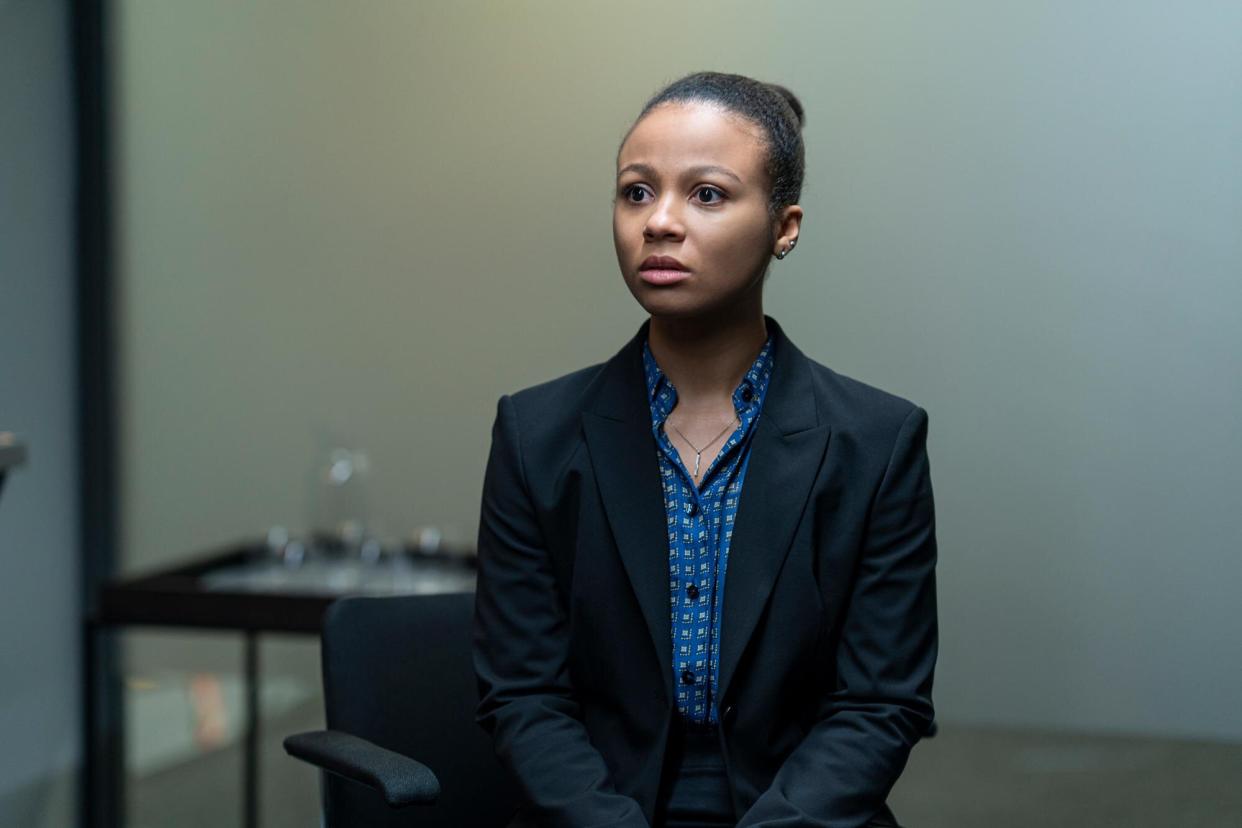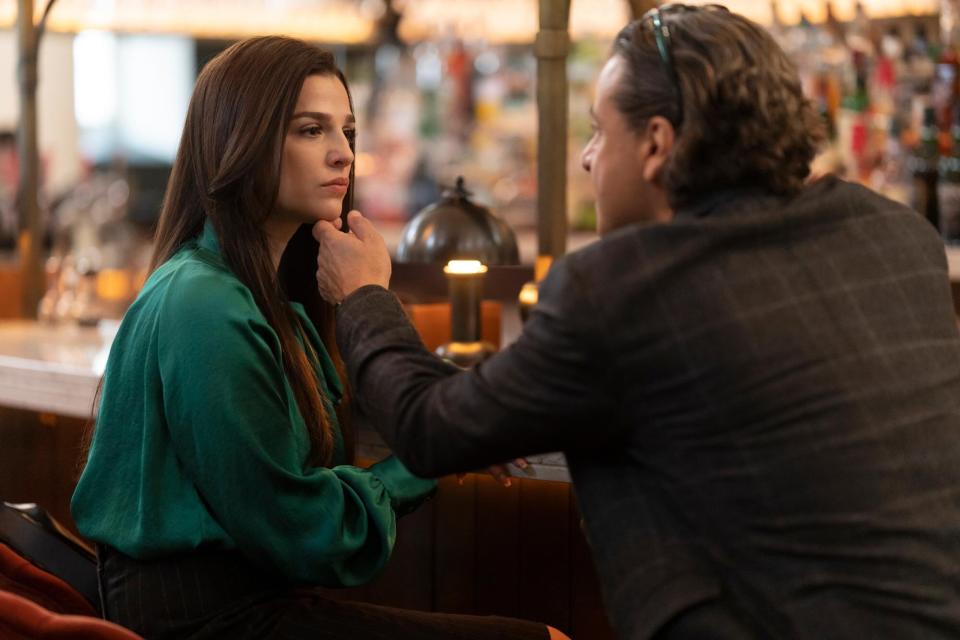Industry bosses break down that season 2 finale shocker

Eric Tao (Ken Leung), what did you do?!
In the Industry season 2 finale, Eric fires Harper Stern (Myha'la Herrold) after revealing to the powers at be at Pierpoint that her college diploma is forged. "Eric fed them that information. He was the person in the conception of the show that was hiding this secret for her, and he's now turned the secret back on her," co-creator Mickey Down tells EW.
Eric and Harper were trying to secure better positions for themselves at the bank after attempting to find a lifeline away from Pierpoint. But after watching Harper make some particularly cutthroat moves — including throwing Danny Van Deventer (Alex Alomar Akpobome) and Rishi Ramdani (Sagar Radia) under the bus — he decided to turn her in.
Below, we spoke to Industry co-creators Down and Konrad Kay about Harper's firing and more from the season 2 finale.

Nick Strasberg/HBO
ENTERTAINMENT WEEKLY: Harper and Eric's dynamic is always shifting, but in the finale he reveals how much he's taken care of her and lets her lead the charge on getting the new team. Why'd he do it?
MICKEY DOWN: His motivations are intentionally ambiguous. From one perspective, you could say that he has been planning this since episode three and certainly since he accepted the idea of leaving Pierpoint with her. There's an argument that he put that idea in her head to manipulate her into thinking she was bigger than Pierpoint. The other takeaway is that he is in some way saving her from herself, because in the finale there's a number of things Harper does, which Eric is witness to, that he feels is beyond the pale. There's an idea that he actually uses this relatively minor indiscretion of forging her transcript to get her out of the industry.
We never see Danny and Harper interact after he's let go. Have we seen the last of him?
DOWN: It's hard to say. That way of being fired where you come into work and your card doesn't work is actually an authentic portrayal of the way people are fired in banks. It is a very callous way of letting someone go and we wanted to represent that. It's an intentional anticlimax.

Simon Ridgway/HBO
Yasmin (Marisa Abela) clashes with her father and Celeste (Katrine De Candole) over how she wants to move forward as a professional. Is this a turning point for her? And how hard is what she's actually trying to do going to be for her?
KONRAD KAY: The second season for her is a very slow burn story about the scales falling from her eyes about her privilege, but mainly her willful blindness about her father. We wanted to take her on that journey. She's constantly in this negotiation because her father represents not only past privilege, but future privilege because he's the key to her rising through the ranks at Pierpoint. We showed her Charles' true face and we're going to see her start to put the pieces together. At the same time, the contradiction will be that. That [confrontation] scene is a pivotal scene because it's powerful from her point of view, but a lot of what her father says logically is true. People will likely have strong reactions, either pro-Charles or pro-Yasmin.
Then Mickey came up with this brilliant beat, which is one of my favorites from the season, where Yasmin doesn't pay for the bill at the end of dinner. It's perfect because it tells you everything about the way Yasmin goes through the world and in a way it's a darkening of everything you think about her.
It sets up this cool place for season three where she's free of her father's money, but also we get to examine how much of it was parentage and how much of it is something that she's never going to be able to change about herself?
How does Gus (David Jonsson) teaming up with Jesse (Jay Duplass) reshape his future after a season spent trying to find his way away from Pierpoint?
DOWN: It's interesting because if you bought into the idea that Gus could have this quite fulfilling and altruistic life through public service, then his ending is a tragic one because he says no to that in the pursuit of ambition, money and success again. But for us, and for him, it feels triumphant.
How does Eric's "super team" with the desks working closely together open up the storytelling possibilities for season 3?
KAY: We wanted season 2 to have a very definitive ending, so Harper and Eric feels like a full stop rather than a dash. But you're right, the merging of the desks has this feeling of renewal. We have no idea if we're gonna get a third season, but we wanted to open up the possibilities, because for us, it's a very exciting idea. The idea of Eric and Yasmin in scenes — they've never said a word to each other in the show. What does that relationship look like? Or Eric and Kenny? One thing we learned was narrowing the focus and pushing people together helps the show. If we get a season 3, we'll be able to tell stories that intersect far more and have the characters in a tighter network.
We've discussed in the past how Harper and Yasmin are the center of this story. They start off with a broken bond, how do they end the season?
DOWN: That relationship this season criss-crosses. They're always meeting at the potentially wrong moment, so we wanted to bring them to a place of understanding and empathy by the end of the season. That's why they have that little moment in the church at Rishi's wedding where they accept each other's insecurities and inadequacies. It opens up the possibility of a relationship down the line. We're not saying they're going to be besties right now and live together.
This interview has been edited and condensed for length and clarity.
Sign up for Entertainment Weekly's free daily newsletter to get breaking TV news, exclusive first looks, recaps, reviews, interviews with your favorite stars, and more.
Related content:

